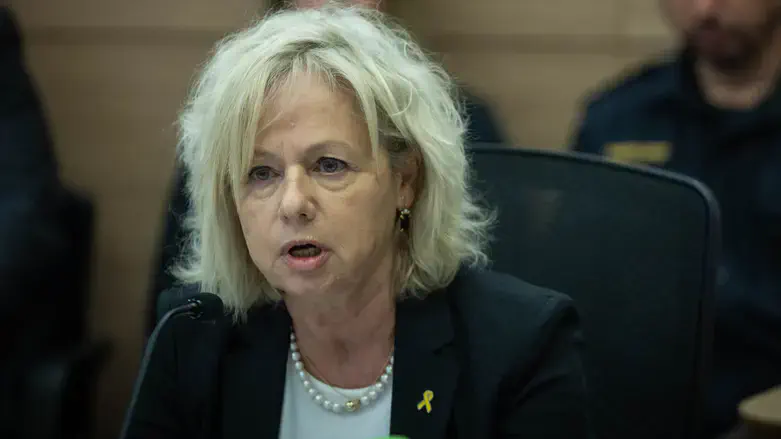
The Israeli government on Sunday morning submitted its official response to the Supreme Court regarding petitions against the ongoing proceedings to dismiss Attorney General Gali Baharav-Miara.
In a sharply worded statement, Justice Minister Yariv Levin and Minister Amichai Chikli, who chairs the ministerial committee on replacing the Attorney General, accused Baharav-Miara of creating an “absurd situation” in which she allegedly “uses state resources for her personal needs and subjugates the public legal service to her personal will.”
“For a long time now, the Government of Israel has not received a fair legal process in cases involving disputes with its legal advisor,” the response stated. “The government sees no point in continuing this charade and expects the Supreme Court to recognize the magnitude of the absurdity, distortion of justice, and flawed legal proceedings. The Attorney General has systematically acted to sever the rope—and has indeed torn it. Now she expects the Honorable Court to do the same, despite the grave implications. This must and should be avoided.”
The government contends that Baharav-Miara is in a clear conflict of interest, as she is directly implicated in the petitions yet allegedly denies the government legal representation while instructing state attorneys to present only her personal stance. “This is an upside-down reality,” the government wrote. “The public legal service is not the personal property of the Attorney General. It is meant to represent the government. Expecting the government to respond to petitions while detached from its legal team undermines its right to a fair process.”
The government further accused Baharav-Miara of applying a double standard: “She demands that the government avoid distant and speculative conflicts of interest, while she herself stands before the court with a glaring conflict of interest of her own.”
The response argues that the very conduct of the legal proceedings at the Supreme Court, in the absence of proper legal representation for the government, highlights the severity of the current crisis. It emphasized that the process undertaken against Baharav-Miara was lawful and that her hearing was conducted with full respect for her rights.
The government also noted that Baharav-Miara failed to respond for months to official documents presented to her and did not attend the cabinet meeting where allegations against her were discussed. Nevertheless, it stressed that the decision to grant her a hearing went “far beyond what is required.”
The statement concluded with a submission of two supplementary documents detailing the grounds for her dismissal, including records of repeated attempts to bridge differences with Baharav-Miara—attempts the government claims failed and now cause “severe damage to the governance of the country and to the public at large.”
The government called on the court to reject the petitions and interim orders “outright,” arguing it is unreasonable to force it to continue working with a legal official it claims is politically motivated and has long since lost its full confidence.
